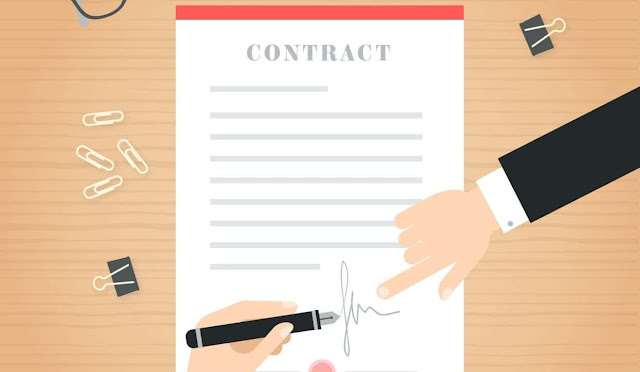How to Change Name on Birth Certificate in Vietnam?
Thứ Hai, 27 tháng 2, 2023
Procedure to Change Birth Certificate in Vietnam
Multimodal Transport Business Regulations in Vietnam
On October 16th, 2018, Vietnam Government issued Decree No. 144/2018/ND-CP amending, supplementing the decrees on multimodal transport. Under the law of Vietnam, multimodal transport (“MT”) is the transportation of goods performed with at least two different modes of transport under the multimodal transport contract from an original place to a place designated for delivery, the carrier is liable for the entire carriage. MT business includes: International multimodal transport (“IMT”) and Domestic multimodal transport (“DMT”).
Chủ Nhật, 26 tháng 2, 2023
Benefits of Representative Offices in Vietnam
Following the trend of international economic integration, foreigners have been attracted by the benefits of doing business in Vietnam through setting up representative offices, setting up company, acquiring shares in Vietnam enterprise through M&A activity.
The Regulation on Science and Technology Enterprises in Vietnam
The science and technology enterprises (S&T Enterprises) means an enterprise implementing production and business science and technology service to make a goods or product from results of science research and technology development. The S&T Enterprise’s operation is based on the successful application and exploitation of research process in itself or the results of scientific and technological research from the scientists, organizations or research results transferred from abroad that they have the lawful ownership use rights. The Government issued the Decree No. 13/2019/ND-CP dated on February 01st, 2019 on science and technology enterprises.
Thứ Năm, 23 tháng 2, 2023
Conditions for Establishing Representative Office in Vietnam
Decree No. 07/2016 / ND-CP regulating the Commercial Law regarding representative offices and branches of foreign traders in Vietnam that have recently been issued by the Government.
Thứ Tư, 22 tháng 2, 2023
Construction Operation License Instead of Contractor’s Permits for Foreign Contractor in Vietnam
The foreign contractors are only permitted to carry out construction activities in Vietnam so long as being granted construction operation license by Ministry of Construction as per the Construction Law.
Thứ Hai, 20 tháng 2, 2023
Legal Regulations in Purchasing Real Estate in for Foreigners in Vietnam
Vietnam has become a better place for foreigners to visiting and staying. Many chose Vietnam as home and they come to Ho Chi Minh City, Ha Noi, Da Nang, Phu Quoc, Nha Trang… to buy real estates for living. Many foreigners consider seeking understanding and with the advisory of their real estate lawyers in Vietnam to purchase the property under their name for best interest protection. There are a number of foreigners seek to cooperate with local Vietnamese under investment agreement to invest in properties. It has always been suggested the buyer or investor to receive legal advice from real estate lawyers and law firms in Vietnam before committing the investment to a certain extent.
Draft and Review Contracts - A Lawyer's View
In Vietnam, certain type of contract has to follow forms requested by laws as such client is recommended to seek help from professional contract lawyers in Vietnam to help draft or review.
- Use right legal terms or terminology;
- Foresee the future scenarios;
- Describe the specific matters;
- Clearly mention obligations;
- Obtain a balance between parties involved.
- Joint venture contract;
- Share purchase contract;
- Sales contract;
- Business cooperation contract;
- Licensing contract;
- Investment contract;
- Labour contract;
- Lease contract;
- Distribution contract;
- Construction contract;
- Prenuptial agreement.
Chủ Nhật, 19 tháng 2, 2023
Importants Matters to Consider in M&A Contract
Before carrying out merger or acquisition (M&A), enterprises need to research carefully regulations of law to protect their rights and interests. Regulations on each aspect of M&A activities are referred to in various legal documents such as Law on Enterprises, Commercial Law, Competition law, Law on Investment, Civil Code … When carrying out M&A, enterprises should also pay attention to some basic terms in the contract. The M&A lawyers should be referred to for effective process and minimizing risks of the transaction.
Thứ Năm, 16 tháng 2, 2023
Guidance on Unilateral Divorce Procedure
Divorce is the termination of husband and wife relationship according to the court’s legally effective judgment or decision. Divorce procedures are prescribed in the Civil Procedure Code, Law on Marriage and Family, Law on Mediation at grassroots… There are two forms of divorce in Vietnam: divorce at the request of one party (unilateral divorce) and divorce by mutual consent.
Thứ Tư, 15 tháng 2, 2023
What Conditions to File Divorce Petition?
Divorce means termination of the husband and wife relation under a court’s legally effective judgment or decision.
Thứ Hai, 13 tháng 2, 2023
How Law Regulates Employing People with Disabilities in Vietnam?
Disabled people are those who have one or more body parts or functional impairments which are manifested in the form of disability, which makes it difficult for labor, living and learning. The State sponsors the right to labor and creates jobs for disabled workers, has policies to encourage and give incentives to employers to create jobs and to accept workers with disabilities to work in Vietnam.
Temporarily Stop Granting Work Permits to Foreigners Originating from Infected Area Because of Covid-19
An outbreak of acute respiratory infections caused by a new strain of Corona virus (nCoV) was first detected in Wuhan City, Hubei Province, China in December 2019. Up to now, the disease has spread to many cities in China and more than 20 countries in the world including Vietnam. Facing new complicated movements of the acute respiratory disease epidemic caused by a new strain of Corona virus (Covid-19), on February 2nd, 2020, the Vietnam Minister of Labor, War Invalids and Social Affairs issued Official Dispatch No. 01/CD-LDTBXH on strengthening measures to prevent and control Covid-19 epidemics through the tighter control of immigration process, including the grant of visa, work permit, temporary residence card for foreigners originating from infected area.
Chủ Nhật, 12 tháng 2, 2023
Restructure the Debt Payment due to Covid-19
On March 13, 2020, the State Bank issued Circular No. 01/2020/TT-NHNN providing guidance for the credit institutions, foreign bank branches to restructure the debt payment, exemption and reduction periods, charge, keep the debt group in support of customers affected by Covid-19 epidemic, which is an important legal grounds to support the economy.
Thứ Năm, 9 tháng 2, 2023
Complete 1st Stage of the Information Technology Zone in Danang
On January 6th 2020, the Prime Minister issued Decision no.27/QD-TTg on establishing the information technology zone in Danang – Stage 1, effective from January 6th 2020. Specifically, the Danang information technology (IT) zone – Stage 1 has an area of 131 hectares, located in Hoa Lien commune, Hoa Vang district, Danang city.
Thứ Tư, 8 tháng 2, 2023
Highlights in the Law on Entry, Exit, Transit, and Residence of Foreigners in Vietnam 2020
Foreigners investing in Vietnam need to travel to Vietnam on investment purpose with the right visa supporting their purpose to comply with the Law on Entry, Exit, Transit, and Residence of Foreigners in Vietnam.
Thứ Hai, 6 tháng 2, 2023
Danang’s Target in 2020 is “The Year of Promoting Investment Attraction”
On December 04th, 2019 Da Nang city held the conference on the result of the socio-economic development in 2019 and the target of the city in 2020. The conference affirmed the situation of implementing the city’s political duties, ensuring some criteria for socio-economic development of the city. In 2019, the city has achieved some outstanding results such as: budget revenue exceeded the assigned estimate (estimated at VND 28.170 billion, reached 102,9% of the estimate, up 3,5%; attracted more than 3.696 billion dong of domestic investment and more than 658 million USD of foreign investment capital (newly granted investment certificates of 118 FDI projects with a total registered capital of 437,13 million USD, 8 times higher than the same period); Total tourist arrivals were estimated at 8.69 times, up 13.4%, revenue from tourism activities was estimated at 30.973 billion VND, up 16,7%. In the year, social order and safety were maintained, is considered by many investors and tourists to be a destination for investment and tourism.
















.jpg)

.jpg)







.jpg)


